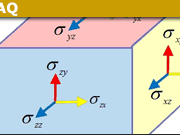The Essential Guide to Self Study Mathematics
Click For Complete Series
Table of Contents
How to self-study mathematics?
People self-study mathematics for a lot of reasons. Either out of pure interest, because they want to get ahead, or simply because they don’t want to take formal education. In this guide, I will try to provide help for those people who choose to self-study mathematics.
Is it even possible to self-study mathematics?
Yes, it is possible! But it can be tricky. You might get stuck somewhere or you might hit a wall. This is very discouraging, and it is the reason most people quit. It might also be the case that you think you understand the material, but you don’t (or not enough). If you manage to get access to a tutor who guides you, then things will become much easier for you. Of course, finding such a tutor can be difficult. This forum can of course also give you access to many qualified people who may help you. For example, if you get stuck, you might want to ask for help in the homework forums or the main technical forums. It might also be useful to create a thread “This is what I know about a topic, please ask me questions to challenge my understanding”. The good thing about this forum is that you can get a discussion between you and the helpers, instead of just a straightforward answer. Use this quality of the forums!
How much time should I invest in my self-studies?
It entirely depends on you. However, I do recommend studying at least one hour every day and doing this every day. It’s not so good to do nothing one day and then study for 10 hours another day. You need to be consistent. It’s way better to study for less time but to do it every single day.
Furthermore, it might be helpful to do some “revision” sessions from time to time where you just revise the previous material. It is good to write your notes and to revise those. Writing notes makes you remember the material better, and you can add in the amount of detail you wish.
If possible, don’t try to do one entire chapter or section in one single day. Try to stretch it for a few days so you are more immersed in the material. For example, try to do the theory one day, and the problems another, then a revision the third day.
Finally, do try to take frequent breaks. Studying for more than 50 minutes straight is not good. Better to take a short break. Also, don’t forget physical exercise. Going for a walk (for example) can help the heart pump blood to the brain. It will also relax your mind a bit.
How do I study mathematics?
This is very tricky and it usually takes a long time to find your method. I usually study a section or chapter in several steps. I found that while it made studying a lot slower, it also increased my understanding exponentially. Here are the steps I follow:
1) Skim the relevant section or chapter. Read the definition statements and theorem statements. Do not read the proofs. Read the exercises and try to solve them. Do not waste too much time solving them, but do try to identify the problems in solving them. Maybe you’re missing relevant definitions or formulas, or maybe it just takes a lot of time.
2) Read the section or chapter very carefully. Try to understand every sentence and every step in the proof. Try to fill up the missing steps. Work out the examples in the text. It is also a good idea to try to prove a theorem before you read the proof. Don’t waste too much time here, but do think about it.
3) Expand on the material by asking yourself the following questions:
In a definition:
a) Give an example of something satisfying the definition.
b) Try to give a classification of everything satisfying the definition
c) Give a counterexample: something not satisfying the definition
d) Investigate relations with some other definitions. For example: is every bounded function continuous? Is every continuous function bounded?
e) Try to find out why we care about the definition.
f) Draw a picture
In a theorem:
a) Give an example of a situation satisfying the conditions of the theorem and try to prove the result for the theorem for that example
b) Give an example of something satisfying all the conditions but one, and where the result of the theorem doesn’t hold
c) Does the converse of the theorem hold?
d) Can we improve the theorem?
e) Try to figure out what happens in the special, extreme, or limiting cases
f) Is this theorem related to a previous one? Is it a kind of converse of a previous theorem? Is it a kind of special case, or is it more general than a previous theorem?
g) Draw a picture
h) Make a mindmap detailing the previous theorems and their interdependence.
In a proof:
a) Identify the crucial steps
b) What techniques in the proof have you encountered before? Are there techniques you can use later?
c) Try to write down the proof in one sentence, identifying only the crucial step(s).
d) Try to reconstruct the proof with the help of the crucial steps.
e) Reconstruct the proof over and over again until you understand it well.
It is ok if you’re not able to answer some of these questions, what matters is that you thought about it well. Also, try to philosophize on the material.
4) Memorizing the section/chapter. No matter what people say, memorization is important in mathematics. But one can be smart about it. For example, it’s important to know (most of) the proofs. But if you only remember the crucial steps, then you can easily reconstruct the proofs. Likewise, you might keep some visualization, pictures, or examples in your mind to help you memorize the concepts. In the end, the material should become second nature. So don’t waste time pushing everything in your brain, rather try to become one with the chapter.
5) Doing the problems. Try to do most of the problems in the book, even if they are repetitive. Repetition helps you memorize the material better. Certainly do not skip the harder problems. Don’t be afraid to ask for help if you don’t find it, but do give the problems a fair shot before asking for help.
6) Make your notes. Write down the important parts of the chapter in the level of detail you desire. Add helpful illustrations and mindmaps. Also, try to keep a list of important examples and counterexamples. Try every new definition or theorem on the examples/counterexamples on that list.
7) Revision.
This might seem like a lot of work, but it is in my opinion the best way to understand mathematics. Remember, learning mathematics should take a lot of time. Rushing things is not good. It is way better to take one day for two pages that you understand well and remember, than taking one day for twenty pages that you forget the following week.
What about video lectures?
Those can be very handy, but I am a bit hesitant about them. The reason is that some people tend to rely too much on them. This is bad because lecture videos give the illusion of knowledge, rather than actual knowledge. It happens quite a lot that people watch some videos, and then think they understand the material pretty well. Sadly, this is not the case. This is why it is very important to know that video lectures are not a substitute for books.
So you should always use a book as a primary resource. Working through a book and (very important!) its problems is essential. Video lectures can be nice as secondary material. For example, you might watch some video before you read the chapter in a book, or after. But always supplement it with a book.
Furthermore, there is an art to reading mathematics. Not everybody can do it. And this needs to be trained. By only watching videos, you can not gain the mathematical maturity that is desired. It is however a perfect supplement to your studies!
The same comments hold for online courses such as Coursera.
Which books and subjects do I study?
These will be subjects that I will discuss in the next posts.
Advanced education and experience with mathematics








I sure wished I had these hints and kinks when I was an instructor. Very good indeed!Regards,ES
Sure, but in my opinion, struggling with the exercises before reading the proofs motivates the proofs a lot. You won’t be able to solve most exercises without reading the chapter in detail, but that is not the point. The point is to try and become familiar with the problems. Then the proofs and theorems will look way more useful and motivated.
“B.S. Electrical Engineering, focused on DSP. I have taken a couple courses in probability, but nothing in statistics. I am familiar with Markov chains, and Kalman filtering for example, but not in Z-score. (I have only heard the term). Probability is more interesting to me than statistics, but statistics is becoming more and more required for my work.
(by the way you participated in a thread I created about p-values very recently, thank you for your input)”
OK, then you might want to have a look at this online statistics site: [URL]http://www.math.uah.edu/stat/[/URL] It is basically an online textbook on probability and statistics and one of the best resources I have ever encountered. There are many helpful data sets and simulations. A possible downside: it is quite mathematical in nature, in the sense that everything is derived rigorously from its beginning. This makes the text long and perhaps difficult.
As an (easier) alternative, consider Wasserman’s “All of statistics”. It contains a surprising amount of information on statistics and it is all explained very well.
“OK, I will write on that. But perhaps I can already give a quick recommendation to you already? What is your math background?”
B.S. Electrical Engineering, focused on DSP. I have taken a couple courses in probability, but nothing in statistics. I am familiar with Markov chains, and Kalman filtering for example, but not in Z-score. (I have only heard the term). Probability is more interesting to me than statistics, but statistics is becoming more and more required for my work.
(by the way you participated in a thread I created about p-values very recently, thank you for your input)
“Perhaps probability and statistics? I am becoming very interested!”
OK, I will write on that. But perhaps I can already give a quick recommendation to you already? What is your math background?
“Superb write-up and gave me some excellent tips. Thanks.”
Thanks a lot! :oops: If you’re interested in me writing about other specific topics, let me know!
Nice post. But shouldn't one be familiar with the proofs before solving the exercises?
Thank you so much :)♥
Wow, what an unexpected topic, yet very useful. I imagine that most of us who self study do so without any advice at all. Thank you.I am a fan of Leonard Susskind's video lectures on physics. But I note, that after viewing all 160 lectures, I have trouble remembering what was said in the earliest ones; so I repeat them all over and over again. Very enjoyable. But in one of the very first lectures, Susskind identifies his target students; very senior technical people who are in a big hurry to understand concepts in the little time remaining to them. That describes me very well. :-) I don't need the maturity in learning.
very helpful indeed :)
Thanks very much. Lovely Insight and terribly useful too! Now to go apply this stuff!
Superb write-up and gave me some excellent tips. Thanks.